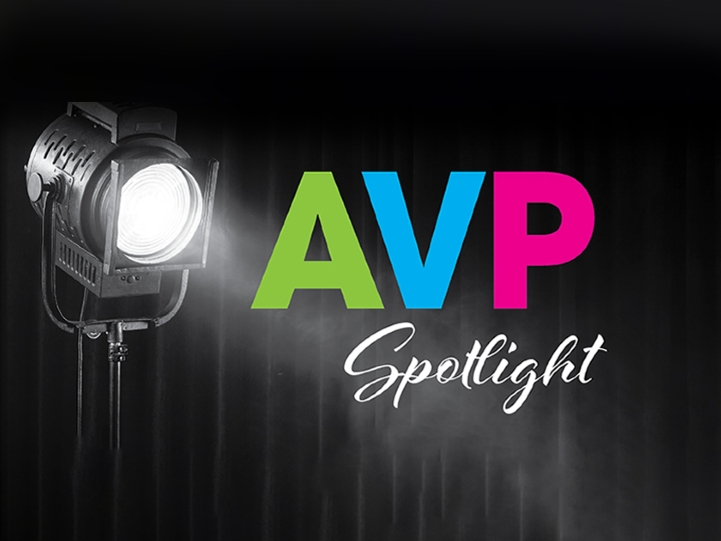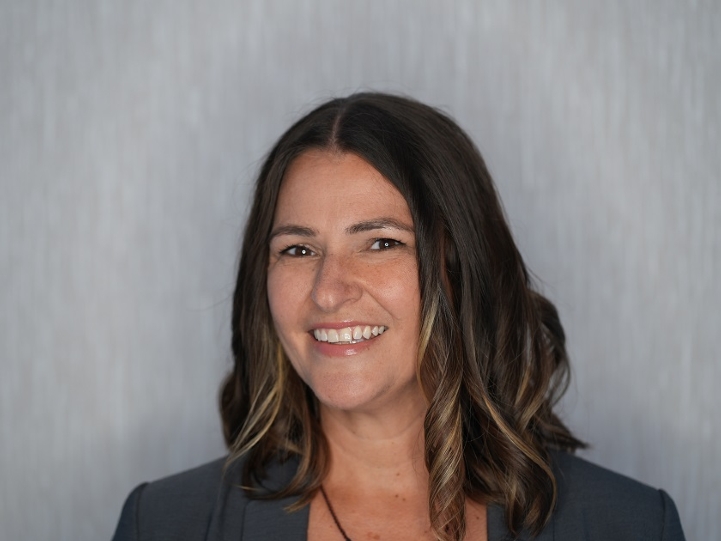
AVP Spotlight: Meet Angela Lauer Chong of Florida State University
Supporting the Profession AVP or "Number Two" Senior Level VP for Student Affairs
November 29, 2022
 The AVP Spotlight series is an initiative of the NASPA AVP Steering Committee and is designed to highlight many of the outstanding contributions to the profession that are made by AVPs across the country.
The AVP Spotlight series is an initiative of the NASPA AVP Steering Committee and is designed to highlight many of the outstanding contributions to the profession that are made by AVPs across the country.
This edition features Angela Lauer Chong, an AVP at Florida State University. She has almost 25 years of experience in the field of student affiars. Learn more about Angela below!
Please share with us your title, institution, years of service in your current role, and years of service as a student affairs professional.
I currently serve as the associate vice president of student affairs and dean of students at Florida State University. I oversee our health, wellness, and safety portfolio. I’ve been in this role for four and a half years, since Summer 2018, and I am going on 25 years in the field if you count graduate school.
Describe the units within your portfolio and if you have any specific duties in addition to providing supervision to those units.
I oversee Campus Recreation; University Health Services, which includes our Center for Health Advocacy and Wellness (which is our health promotions); Counseling and Psychological Services; the Office of Title IX; Student Conduct and Community Standards; and the Department of Student Support and Transitions, which includes our victim advocate program, office of accessibility services, case management services, the investigations and assessment arm for student organization misconduct, and withdrawal services. Beyond the direct supervision of those pieces – as the dean of students, I have a lead role in crisis intervention, behavior intervention, and threat assessment, and am an executive leader within the Division of Student Affairs (strategic planning, assessment) as well.
What do you enjoy doing most in your current role?
I just have the most amazing team. I have never worked with a smarter group of people than my director team. The folks I have leading each one of those different areas – I would put their expertise up against anyone in the country in what they do in their specific area. It’s been so amazing to work with this team of people, not just in their individual departments but bringing them together to think more holistically about what we’re doing for health and wellbeing at Florida State University and tapping into the amazing think tank that I have right here and get to work with every day. That’s been really cool! That’s probably the thing that bring me the most professional joy. Our work – a lot of it is putting out fires and working with students when they’re not at their best or they’re going through something, so it just gives a different dimension to be able to work with this amazing cadre of folks on the proactive and strategic side of things.
How have you been involved in NASPA and do you currently serve NASPA?
I don’t have a current role in NASPA. I took a little bit of a break during the pandemic with everything going on. I served in the past on the AVP Steering Committee, and I used to lead the AVP Reads program when that was active. After AVP Reads, I worked on the AVP Pre-Conference Session that is still offered. That was really my way of giving back through the AVP role. This year, I am returning to NASPA. Dr. Amy Hecht, two other colleagues we worked with previously from the College of New Jersey, and I are presenting on a research project about how high-achieving women in student affairs spend their time. We’ve presented this once before at NASPA when we did kind of a “lighter” time study and research study, but we’ve really dug in this year and look forward to what we can share as a follow-up.
What is the best advice you would give yourself as a new professional knowing what you know now?
I would tell myself to prioritize my wellness a little more in the beginning and be a little more clear with boundaries. I’m really good at that now, but I really wish I would have started this earlier. I would also give myself the advice that it is going to be okay. In conduct or fraternity and sorority life as a new professional, it was difficult to see beyond a crisis or beyond a parent who was really angry with me or the process. Helping myself as a young professional understand that this is a moment in time and that folks aren’t upset with me, they’re upset with the process or circumstances and to not take that personally as a young professional and having some grace for myself. When you’re a young professional, the thought of making a mistake is almost paralyzing. So, having grace for yourself to allow yourself to take a risk and make a mistake and learn from that is something I wish I would have allowed myself the grace to do a little bit more as a younger person in the field.
What is something you are most proud of as an AVP?
I’m really proud of the work I’ve been able to do with this amazing team to reframe and recast how we think about health and wellbeing. Helping others understand that student conduct is wellness. Title IX is wellness. The career center is wellness. We are reframing the conversation about holistic health and wellbeing and its contributions to student success. It’s not just a “nice to have”; it really is critical and foundational to our students’ ability to learn (not just in the classroom but socially as well) and to thrive in and outside the classroom. I’m really proud to be in a position to lead those conversations and to reframe how we think about health and wellbeing at Florida State.
AVP roles are challenging! What do you do outside of work to ensure that you are fresh and energized for your campus job? What do you do for fun when you are not working?
Being a health and wellness person, I have fully embraced that. That has to be part of what I do. I’ve gotten really invested in nutrition and I have changed completely how I eat. I eat primarily plant-based now, which has been a game-changer. I feel so much better and so much more energized and fueled. I work out regularly, whether that’s walking or working out with a student trainer from campus recreation. Health and wellbeing – outside of being part of my job – is really a part of my life and helps fuel me for this difficult job. My twin boys are now nine years old, and they are another full-time job. Embracing them at each age and what they’re doing and what they bring into our lives is really fun and such a great balance. I get to come home to that, and it really is perspective-giving. But, I love food, so my hobby would probably be eating! Appreciating food at a whole different level, especially with this health and wellness lens over it really brings me a lot of joy. I’m always looking for my next meal!
How do you balance your personal life with your professional responsibilities?
I think about this a lot, especially since this is the subject of our research study! I was so much more at peace after giving up the idea that I could find balance, like it was some kind of white whale that I was in search of. Understanding that – for me – it’s not about finding balance. There are days that I am 95% a dean of students and maybe 5% me – Angela, mom, partner; other days, I’m 75% just a mom. Giving yourself grace and permission that your life is going to look like more of a mosaic…every day is going to look a little different. My kids are part of my work life and my work life is part of my kids. It doesn’t work for me to draw bright lines. The reality is that I’m always on call at work, and I’m always on call at home, too. I might need to integrate kids into an event I’m having at night. Understanding that this is all part of me holistically is how I’m choosing to look at balance these days instead of figuring out how to turn this on and off. It doesn’t work like that for me, not with my family and my job.
What are you reading now (or have read recently)?
I always have a number of different books going at once. I have a work stack and a stack at home. A lot of our work in conduct is based on Peter Lake’s Beyond Discipline. So, I’m dusting this one off and revisiting while I’m working on some training. Identity-Conscious Supervision in Student Affairs is a book I’m reading for a book club that we have at work to get supervisors together to talk about identity-conscious supervision and how important that is. And, then I picked Crisis, Compassion, and Resiliency in Student Affairs back up because I just needed something that is written “by my people” and to know “I’ve got this.”
At home, I’m revisiting Laura Vanderkam’s book, I Know How She Does it: How Successful Women Make the Most of their Time. She is the inspiration behind our time study and our research project. And, I have a book that is always on my nightstand that is about being an adult coping with grief due to the loss of a parent. I lost my dad two years ago, and it’s a process book that I can pick up when I need to reflect. It’s like my companion as I attempt to do some self-work at the same time.
And, then my “for fun” that is on my Kindle to turn my brain off before I go to bed is Fire and Blood, which is the prequel to Game of Thrones franchise. So, when I need to unplug, I just read about dragons for a bit and then I can go right to sleep!